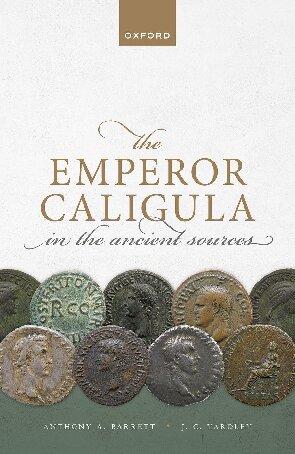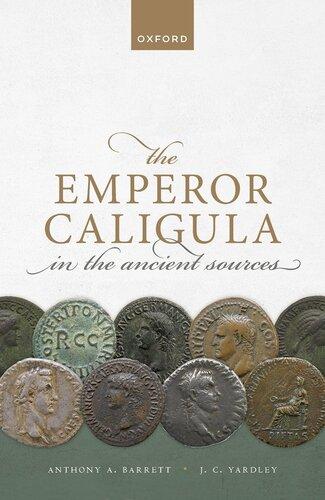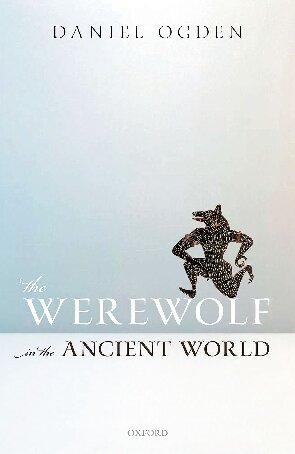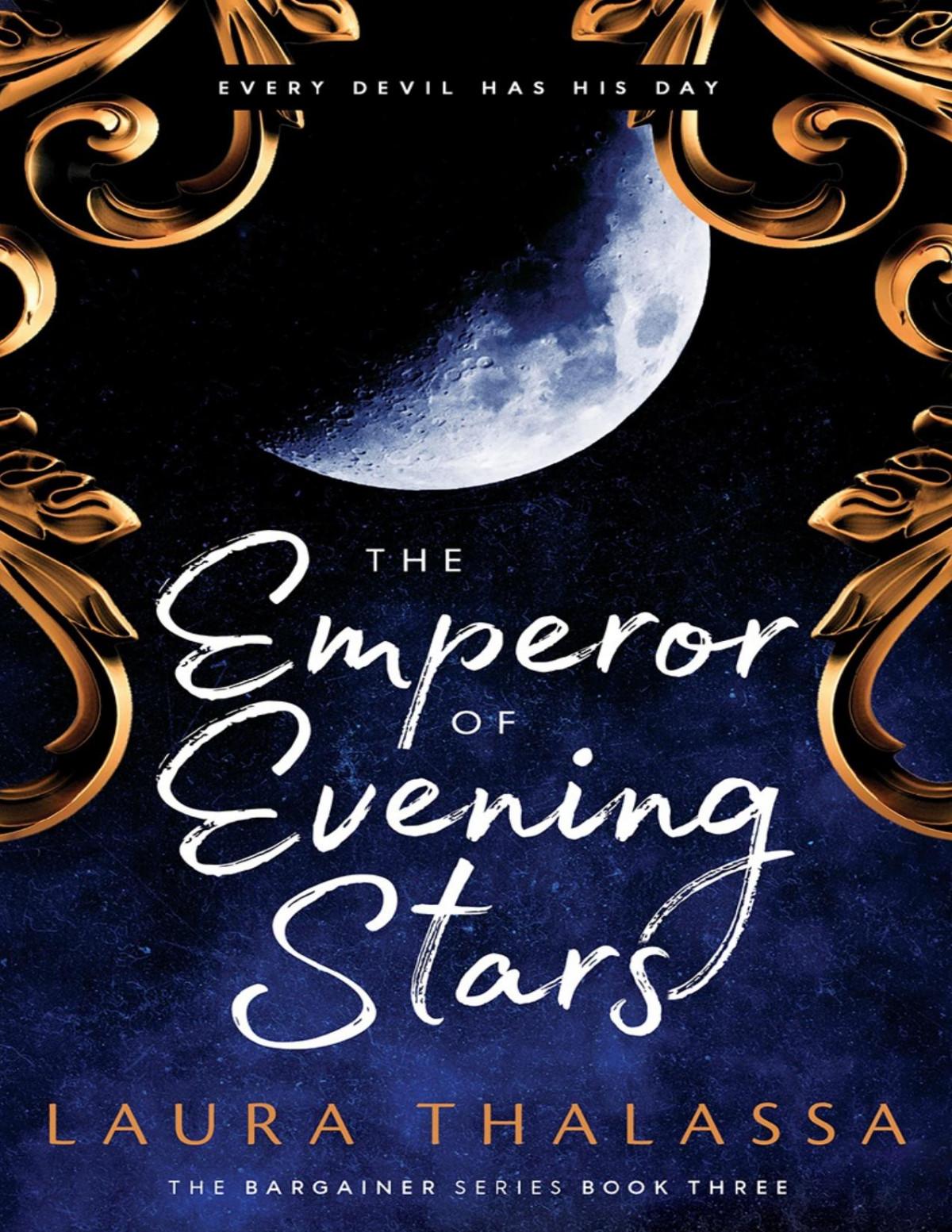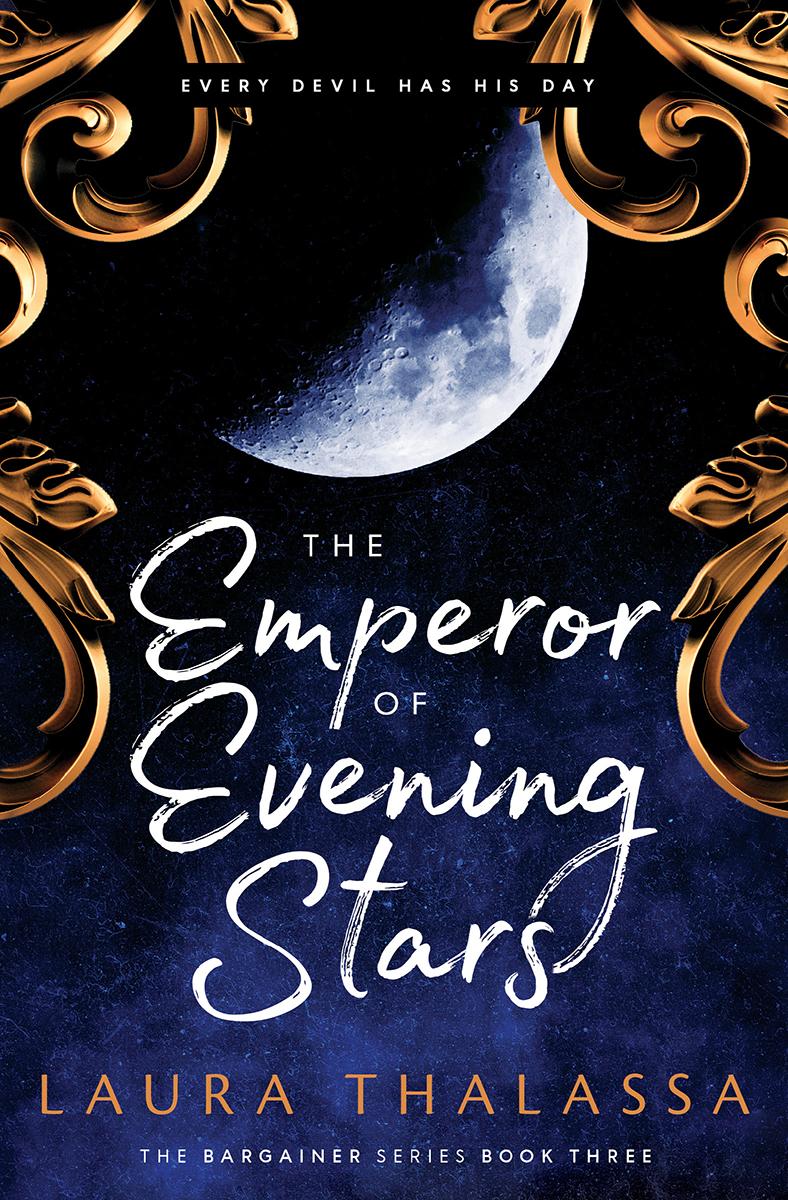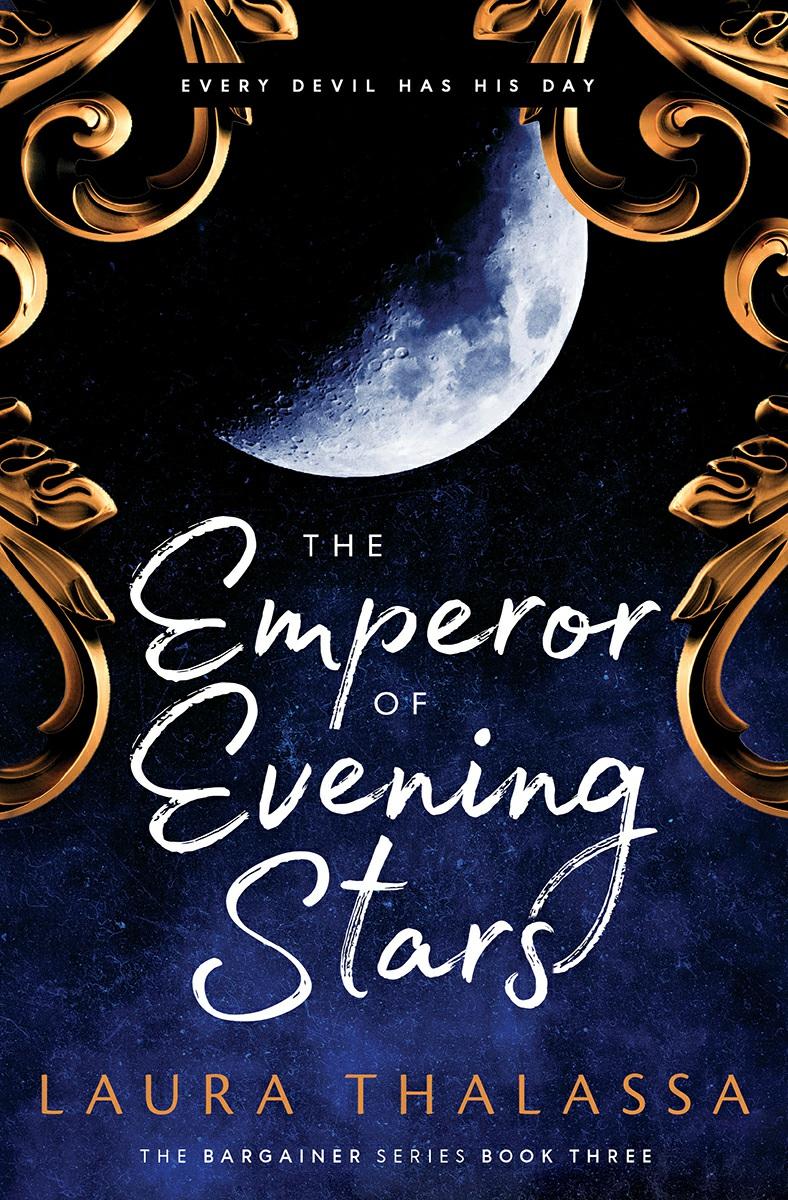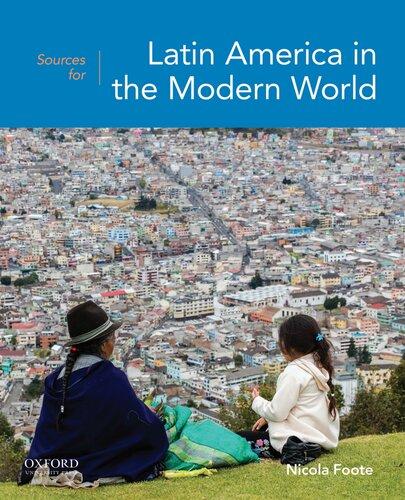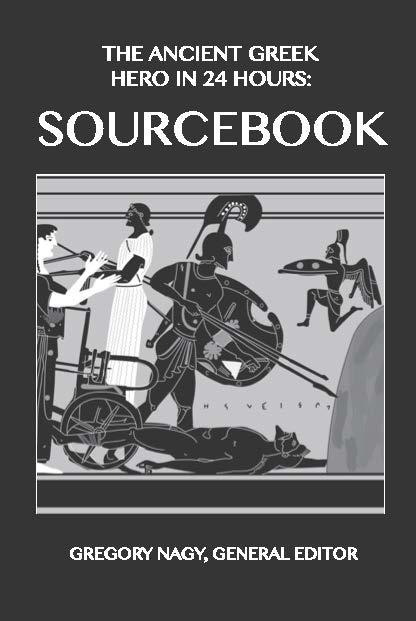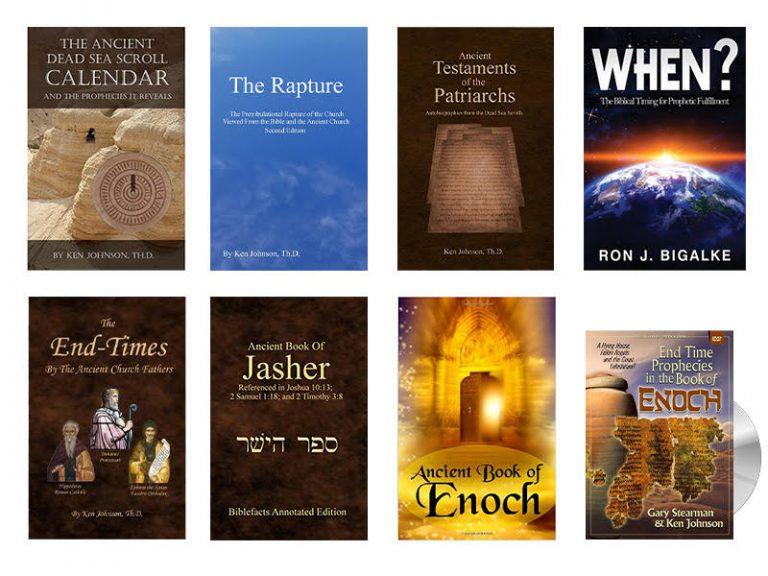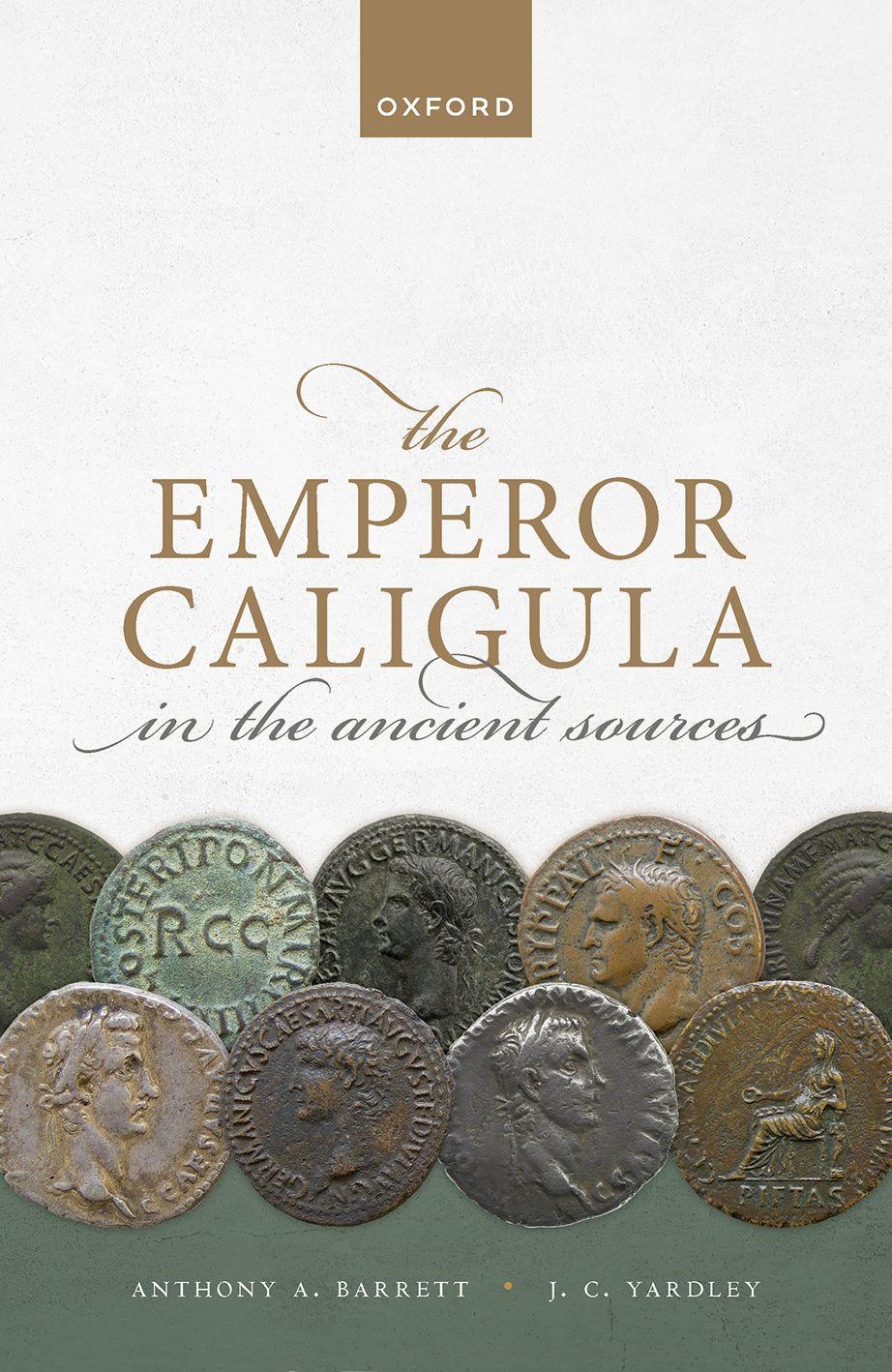TheEmperorCaligulain theAncientSources
ANTHONYA.BARRETT and J.C.YARDLEY
GreatClarendonStreet,Oxford,OX26DP, UnitedKingdom
OxfordUniversityPressisadepartmentoftheUniversityofOxford. ItfurtherstheUniversity’sobjectiveofexcellenceinresearch,scholarship, andeducationbypublishingworldwide.Oxfordisaregisteredtrademarkof OxfordUniversityPressintheUKandincertainothercountries
©AnthonyA.BarrettandJ.C.Yardley2023
Themoralrightsoftheauthorshavebeenasserted Allrightsreserved.Nopartofthispublicationmaybereproduced,storedin aretrievalsystem,ortransmitted,inanyformorbyanymeans,withoutthe priorpermissioninwritingofOxfordUniversityPress,orasexpresslypermitted bylaw,bylicenceorundertermsagreedwiththeappropriatereprographics rightsorganization.Enquiriesconcerningreproductionoutsidethescopeofthe aboveshouldbesenttotheRightsDepartment,OxfordUniversityPress,atthe addressabove
Youmustnotcirculatethisworkinanyotherform andyoumustimposethissameconditiononanyacquirer
PublishedintheUnitedStatesofAmericabyOxfordUniversityPress 198MadisonAvenue,NewYork,NY10016,UnitedStatesofAmerica
BritishLibraryCataloguinginPublicationData Dataavailable
LibraryofCongressControlNumber:2022948820
ISBN978–0–19–885456–2(hbk.)
ISBN978–0–19–885457–9(pbk.)
DOI:10.1093/oso/9780198854562.001.0001
Printedandboundby CPIGroup(UK)Ltd,Croydon,CR04YY
LinkstothirdpartywebsitesareprovidedbyOxfordingoodfaithand forinformationonly.Oxforddisclaimsanyresponsibilityforthematerials containedinanythirdpartywebsitereferencedinthiswork.
Preface
Thisisinsomewaysaratherunconventionalbook.Butthatisprobablyasit shouldbe itis,afterall,abookaboutanunconventionalcharacter.TheRoman emperorGaiusCaesar,morerecognizablebyhischildhoodnickname,Caligula, provokedfearanddespairduringhisownlifetime,sometwothousandyearsago, andinhisownspecialwayhestilldoes,althoughadmittedlyitisnowonly academichistorianswhoaremadetosuffer.TheirgriefarisesfromtheinescapablerecognitionthatCaligularepresentsaninsolubleparadox.Therecansurelybe fewhistorical figureswhohavemadesuchapowerfulimpactonthepopular imagination.Hehaslongbeenahottopicin filmsandTV,whereanunwritten ruleguaranteesthathisdepictionwillbeexaggeratedtothepointofabsurdity, rangingfromhisdementedanticsinthenotoriousPenthouse Caligula (1979)to ourpersonalfavourite,thelesswell-knownbutwonderfullyweirdItalian-French co-production CaliguleetMessalina (1981),whichoffersonlyminimalhints ofhistoricalreality.EventheBBC’sdistinguishedandbroadlyauthenticseries IClaudius (1976)relaxedfortheportrayalofthisparticularemperor,withits particularlygruesomesceneofCaliguladisembowellinghissister/mistress Drusilla,forwhichthereisnotashredofancientevidence.
Academicsmayfeelthattheyriseabovesuchtawdryentertainmentsintheir noblemissionofreconstructingsomesemblanceofnarrativetruthfromthe ancientevidence.ButthisiswhereCaligulaissofrustratinglyparadoxical.The sourcematerialavailableforthisquestforthetruthisplentiful,evenlavish,bythe standardsofantiquity.Theproblemliesnotsomuchinthe quantity ofevidence available,butinits quality. ThehistorianTacitus,themostreliableancient chroniclerofthisperiod,didwriteanaccountofCaligula’sbriefreignaspartof hiscelebrated Annals,but,frustratingly,therelevantsectionsarelostwithout trace.To fillthegapweareobligedtodrawonthecolourful LifeofCaligula of Suetonius,awriterquiteincapableofresistinganentertaininganecdote.Along withSuetoniuswecandrawuponthealmostcompleteaccountofthemuchlater GreekhistorianCassiusDio,unfortunatelyalsoaloverofanecdotes(although, sadly,notnearlysoentertaining,atleastnotthewayDiotellsthem),and exhibitingfarlesscriticalanalysisthanwewouldexpectoftoday’shistorians. Wecansupplementthesetwowithvariousstrandsofinformationderivedfrom other,generallynomorereliable,ancientliterarysources.Asaconsequencewe endupwitharichabundanceofinformation,andadishearteningscarcityof knowledge.ThatistheCaligulanparadox.
ThebroadoutlineofCaligula’simperialcareerisinfactverystraightforward. Hecametopowerinearly 37inawaveofenthusiasm,by39thingshadgone seriouslywrong,byearly41hehadbeenassassinated.Thatmuchcanbeagreed. Butwithinthatgeneralframeworkthereishardlyadetailthatthemodern historiancanpresentwithoutdeepreservationsaboutitsreliability.Whatthen isthathistoriantodo?Inrecentyearswehaveseenastringofbiographiesof Caligula.Thesecertainlyhavetheirplace,buttheydoriskcreatingwhatisin essenceanillusion,thatabiographyofCaligula,intheregularmodernsenseofthe word,ispossible.ThetrueCaligulanbiographyisinfactaquintessentialmare’ s nest themostwecanhopefromthemisasummarypersonalinterpretationby anindividualhistorianofamassofincoherentandofteninconsistentmaterial. Theremightbeacasetobemadeforgoingtotheoppositeextremeandfor directinganyoneseriouslyinterestedinthetopicstraighttotherawmaterialofthe ancientsources.Thattosomeextentisoneoftheobjectivesofthisbook.We provideoverthreehundredtranslatedpassagesofancienttext,takenmainlyfrom literarysources,andalsofromcoinsandinscriptions.Referencestothecatalogue ofthesesourcesaremadeusingthesimpleformatof,e.g.,1.1forChapter1, Passage1,andsoon.Butperusingthisrawmaterialworksonlyatalimitedlevel. Theinformationthathassurvivedisofteninconsistentordownrightcontradictory,andnavigatingitcallsforafairlymatureunderstandingoftheperiod.For betterorforworse,readersdoneedguidance,orattheveryleastsomereassurance thattheseeminglyimpenetrablecharacterofwhatevertruthislurkingbeneaththe tangleofconfusingtestimoniesreflectsthenatureofthebeastandnotany intellectualshortcomingsonthepartofthereader.Henceweaccompanyour translationswithrelativelyextensiveintroductionsand/ornotes,toplacethe eventsandinstitutionsintheirhistoricalcontexts,orsometimessimplytoprovide whatwehopewillbeinterestingsecondaryobservations.Anyguidancethatwe provideonthesemattersisofcourseboundtobeinfectedbyourownviews it simplycannotbeotherwise butatleastthosepotentiallytaintedobservationsare throughoutsubservienttothesourcesthemselves.
Thereisinfactabrightsidetoallofthis.WhileCaligulaperhapsdoesnotlend himselfwelltoabiographicalapproach,heis,ontheotherhand,theperfecttool toassiststudentsofhistoryinpractisingtheirtrade(weusetheword “student” hereinthebroadestsense).Perhapsbetterthananyotherhistorical figureCaligula constitutesasortofhistoricallaboratorywherethestudentisconfrontedbya massofcontradictory,inconsistent,andattimesnonsensicaldata.Heobligesusto confrontheadonthestarkrealitythatwhatwereadinoursourcesisnot necessarilythetruthandthatitisconsequentlyamassivechallengetousethis jumbleofmaterialtoreconstructandunderstandthepast particularlythe ancientpast,buttheprinciplescanbeappliedtoalmostanyperiodofhistory. Arguablybetterthananyotherhistorical figureCaligulabringshomethedegree
towhichthemonumentsofourunderstandingofhistoryarebuiltonoften unstablefoundations.
Webeginwithwhatisinessenceafairlyconventionalbiographicalessay.The remainderofthebookinawaydeconstructsthatessayandtriestodemonstrate howwaryinfactoneshouldbeoftakinganyaccountofthereignatsimpleface value.Theeightcentralchapters,ofwhichChapters1–4and8aremoreorless chronological,5–7thematic,consistgenerallyofaseriesofintroductoryparagraphs,eachfollowedbytherelevantpassages,sometimeswithextensiveannotation.Whatmustbeacknowledgedhere,anditisacknowledgedwithoutapology, isthatthereisnoattemptatasustaineduniformityofapproach;indeed,wefeel thatstrictuniformitywouldcompromisetheusefulnessofthebook.Inplacesa lengthyintroductiontoagivenseriesofpassagesseemsessential,inothersthe briefestprefatorycommentsuffices.Somepassagesareheavilyannotated,others seemhardlytoneedanyexplanatorynotes.Oftenapassagewill fitunderseveral rubrics:generallyinsuchcasesthecataloguenumberassignedtoeachpassagewill beusedtomakecross-references,butoccasionally,veryrarely,ithasseemedmore appropriatesimplytorepeatalineortwo.Also,thebookreflectstheverywide rangeofitspotentialusers.Itis,ofcourse,directedatwhatmightbebroadly definedas “seriousreaders.” Amongthoseseriousreaderssomemayhaveonlya general,evenamateurish,interestinCaligulaandwillnodoubtfocustheir attentiononthetranslatedpassagesandtheintroductorysections.Theywill also findthebasicglossaryofRomantermsusefulbutprobablywillonlyrarely dipintothenotes.Classicistswhoseacquaintancewithantiquityisculturalrather thanphilological,aswellasreaderswhohavenotpassedthroughatraditional Classicalcurriculumbuthaveaspecialisttraininginrelatedacademicdisciplines likehistoryorarchaeology,maywellwanttopursuesometopicsindepth,andthe detailednotesareintendedtoservethem.Ourdesiretocatertoreadersfromthis varietyofacademicbackgroundsmaycreateapparentinconsistenciesinhowthe materialispresented.Weattimesprovidefairlyelementarydata,andwillrepeat suchbasicinformationasfamilyrelationshipsorinsertwhatmightonoccasion seemotiose “ ” or “ ” definitionstoyears.Also,asnotedabove,weprovidea basicglossaryofunfamiliarterms.Becausethetranslatedpassagesareinmost casesextractedfromlargercontextsweoccasionallyreplaceambiguouspronouns withpropernames.Toavoidconfusionwereferthroughouttothealmost ubiquitousfamiliarJewishrulerbythetechnicallyincorrectbuthallowedby usage “HerodAgrippa, ” andwerefertotheemperorTiberius’ grandsonbyhis cognomen “Gemellus,” ratherthanbythepotentiallyconfusingformmostoften usedintheliterarysources, “Tiberius.” Allofthisinanefforttoguidethebeginner throughthebasiceventsoftheperiod.Yetatothertimeswechallengethereader withproblemsthatcallforafairlysophisticatedwayoflookingattheevidence. Weseenorealcontradictioninprovidingthismoreadvancedmaterial.Readersof thisbookwillinevitablyhavegapsintheirknowledge,butgapsinknowledgedo
notprecludethosesamereaders,withresponsibleguidance,fromapplyingto historicalproblemsintelligence,insight,ingenuity,orsimplythefundamental curiositythatliesattheheartofthestudyofhistory.
Itgoeswithoutsayingthatallacademicendeavoursaregreatlyindebtedtothe workoftheirscholarlypredecessors.Inthecaseofthisbookinparticularitshould notbeleftunsaid.Wehavemadeanefforttoreflectrecentideasaboutthemany contentiousissuesofCaligula’sreigninthenotesandintroductorysectionsand ourdebttheretotheachievementsofotherscholarsisenormous,althoughin mostcasesshortageofspacehasprecludedourrecordingthespecificsources ofmuchofthecurrentthinking.Wearealsomuchindebtedtothestaffsof librarieswherewehavebeenfortunateenoughtocarryoutourownwork,the LibraryoftheUniversityofBritishColumbia,Vancouver,theRobartsLibrary oftheUniversityofToronto,theSacklerandBodleianlibrariesinOxford,the UniversitätsbibliothekandtheInstitutelibrariesofAlteGeschichte,ofKlassische Philologie,andofAnglistikinHeidelberg.ThestaffofOxfordUniversityPress, mostnotablyCharlotteLoveridge,KarenRaithandCathrynSteele,havebeen helpfulandencouragingfromtheoutset.Friends,families,andcolleagueshave beenconsistentlysupportiveandwearegratefultothemall.
AsinthepastKorneliaRothhascometoourassistance,withdrawingsofthe youngCaligulaandofoneofthecalendarinscriptionsfromOstia.ValerieLouis providedinvaluablehelpwithcomputer-relatedchallengesandcontributeda constant flowofperceptiveinsightsintothecomplexhistoricalproblemsthat weencounteedthroughouttheproject.
ImportantEventsinCaligula’sLifeandReign
12August31,Birth
14DeathofAugustus
17DepartureforSyria
20ReturntoRome
27ResidencewithLivia
29ResidencewithAntonia
31ResidenceinCapri
33MarriagetoJunia
37March16,DeathofTiberius
March18,Acclamationas Imperator October,Illness
DeathsofGemellusandMarcusSilanus
38DeathofMacro
June10,DeathofDrusilla
39Confrontationwithsenate BridgeatBaiae MarriagetoCaesonia
Departurefornorthernexpedition LateOctober,ExecutionofGaetulicus Banishmentofsisters
40ActivitiesonRhineandatChannel ReturntovicinityofRome August31,Entryintocity,andOvation
41LateJanuary,Assassination
Glossary
aedile Amagistrateholdingofficeafterthequaestorship.Hisdutiesgenerallyinvolved variousaspectsofcityadministration.
Armenia Akingdomwithastrongsenseofindependentidentity,borderingParthia,inthe mountainousareasouthandsouthwestoftheCaucasusandeastoftheEuphrates.Itwas aconstantsourceofcontentionbetweenRomansandParthians.
Arvalbrotherhood Apriestlycollegethatrecordeditsritualsinstoneinscriptions,preserved,withgaps,fortheperiod21 to 304.Thecollegeconsistedoftwelvemenin additiontotheemperor.
Asia Aprovincethatcameintobeingin129 aftertheRomansinheritedthekingdomof PergamuminnorthwestAsiaMinor,onthedeathofitslastking,AttalusIII.Itwas hugelywealthy,andthegovernorshipwasmuchcoveted.
assemblies GatheringsofRomancitizensconvenedtocarryoutspecifictasks,usually relatedtoelectionsandthepassingoflegislation.
augur AnofficialbelongingtooneofthefourRomanpriestlycolleges.Hisareaofexpertise wasdivinationinspiredbythecharacteristicsandbehaviourofbirds.
auxiliaries ApproximatelyhalfofthetotalRomanmilitaryforces,recruitedlocallybut postedthroughouttheRomanfrontierarea.Citizensnormallyservedinthelegions,a distinctbody,whileauxiliarieswereusually,althoughnotexclusively,non-citizens.
Cappadocia AruggedareaineasternAnatolia,stretchingfromtheTaurusmountainsto theBlackSea.
centurion Alegionaryofficerincommandofa “century,” originallyconsistingofone hundredmen,eightybytheimperialperiod.
Cilicia AmountainousareaextendingalongtheMediterraneancoastofsoutheastAsia Minor,graduallyincorporatedbyRomefrom103 on.
cognomen ThethirdelementofaRomanname(suchasCicero,inMarcusTulliusCicero). Sometimesitreflectedsupposedancestralattributes,oritcouldbeatitlebestowedafter anachievement,suchas “Germanicus.”
cohort AunitoftheRomanarmy.Alegionconsistedoftencohorts.Thetermisusedalso ofunitsoftheauxiliaries,andofmilitary/quasi-militaryunitsinRomelikethe Praetorians,theUrbanCohorts,andtheVigiles.
colony(colonia) AttheoutsetasettlementmadeupofRomancitizens,oftenveterans. Laterthestatuscouldbegrantedtoothertypesoftownstoconveyenhancedstatus.
Commagene AregionbetweenthewestbankoftheEuphratesandthesoutheastedgeof theTaurusmountains.Anindependentkingdomwasestablishedthereinthesecond century ,incorporatedbyRomein 18.
consul ThehighestRomanofficial.Emperorsregularlyheldtheoffice.Twoconsulswere electedtogether,originallyforaperiodofoneyear.After5 itwasroutineforconsuls appointedatthebeginningoftheyear(ordinarii)toresignduringtheirtermofoffice,to bereplacedby “suffects” (suffecti),whomightinturnlaterresigninfavouroffurther suffects.Consularrankwasattainableafterthepraetorship,normallywhenthecandidate hadreachedtheageofforty-two,butapreviousconsulshipinone’sfamilyallowedentry muchsooner,perhapsbytheageofthirty-two.Membersoftheimperialfamilydidnot evenhavetowaitthatlong,ortohaveheldapreviouspraetorship(Caligulawastwentyfourwhenheheldhis firstconsulship,Neroseventeen).
dictator Amagistrateelectedduringtherepublictodealwithanemergency.Thetermof officewassixmonths.
donative Adistributionofcashbytheemperor,usuallytomarkaspecialoccasion.
equestrian(eques,pl.equites, alsoknights) Originallythistermwasappliedtoanorderthat servedinthecavalry,latermoregenerallytothecommercialmiddleclass,withaproperty qualificationof400,000sestertii.Equestrianscouldnotmaintaintheirrankandbe simultaneouslymembersoftheRomansenate,buttheydidplayanimportantrolein imperialadministration,holdinganumberofkeyoffices,themostnotablebeingthe prefecturesofEgyptandofthePraetorianguard.
FastiOstienses Acalendarofsignificanteventsfrom49 to 175,preservedinstonein Ostia.
freedman Aformerslavewhohadearnedhisfreedom,oftenstayingintheserviceofthe homewherehehadbeenaslave.ImperialfreedmenwereadistinctivefeatureoftheJulioClaudianperiod.
Germany IntheearlyimperialperiodGermania(Germany)andGermani(Germans)are appliedlooselytotheregionseastoftheRhineandnorthoftheDanube,althoughthese shouldnotbeenvisagedasconstitutingastrictborder.Romeestablishedtwomilitary districtsontheRhine,whichwereinplaceduringtheCaligulaperiod,Upper(south)and Lower(north)Germany,eachhousingfourlegions.
imperium Thepowertocommand,vestedinmagistratesatacertainrank.
knight See equestrian.
legate A flexibletermwiththreecommonmeanings:(a)someoneassignedaparticulartask; (b)acommanderofalegion;(c)agovernorofanimperialprovince.
legion ThemainunitoftheRomanarmy,commandedbyalegatechosenbytheemperor, consistingofbetween fiveandsixthousandRomancitizens.
maiestas Maiestaslaesa (“injuredmajesty”)wasanoffenceagainstthedignityofthestate, lateragainstthepersonorcharacteroftheemperorandhisfamily,broadly “treason.” It
embracedverbalabuseandslander.Undertherepublicthe maiestas lawsweredirected againstincompetenceratherthancriminality;undertheprincipatetheywereapplied morebroadlyandwereaconsiderablesourceoffearandresentment.Bythelatterpartof Tiberius’ reign,banishmentorthedeathpenaltywerefrequentpenalties.
Moesia AregioninhabitedbyThracianstothesouthofthelowerDanube,westoftheBlack Sea.ItwasincorporatedbyRomeinabout29 ,initiallyaspartofMacedonia,andlater becameanindependentprovince,possiblyunderClaudius.
nomen ThemainelementofaRomanname(suchasTullius,inMarcusTulliusCicero), indicatingtheholder’ s gens (family).
Ovation AlesserTriumph,grantedwhenthevictorydidnotmeetalltherequirementsfora fullTriumph ifnotwononasufficientscale,ornotagainstformalenemiesofRomein adeclaredwar,oragainstunworthyfoes,suchasagainstslavesorpirates.Thevictorious generaldidnotenterthecityinachariotdrawnbyfourhorses,ashedidduringa Triumph,butonfootorhorsebackinasimpletoga,wearingawreathofmyrtlerather thanoflaurel.
Pannonia ARomanprovinceborderedbytheDanube,consistingofwhatisnowwestern Hungary,aswellaspartsofAustria,Slovenia,Croatia,andSerbia.
plebeian Originally,amemberofthelowergradeofcitizens,asopposedtothepatricians. Thedistinctionceasedtobeimportant,andbyCaligula’stimetherewereseveral prominentplebeianfamilies.Literarysourcessometimesusethetermcasuallyofthe massofpeopleofRomewhowerenotmembersofeithertheequestrianorthesenatorial class.
pontiff(pontifex) AmemberofoneofthefourpriestlycollegesofRome.Theseniorpriest heldthetitleofpontifexmaximus,anofficeoccupiedbytheemperorfrom12 .
praenomen The firstelementinthenameofaRomanman(suchasMarcus,inMarcus TulliusCicero),roughlyequivalenttoa “given” name,buttherewasaverylimitedchoice.
praetor Amagistratesecondinseniorityaftertheconsuls,holdingofficeaftertheaedileship orthequaestorship.Hismaintaskintheimperialperiodwastheadministrationofthe courts.UnderTiberiusandCaligulathenumberelectedannuallywassixteen.
Praetorianguard Theimperialguard,consistinginCaligula’sdayofninecohorts,commandedbyaprefectorsometimesapairofprefects.StationedinRomeandelsewherein Italy,theyenjoyedcertainprivileges,suchashigherratesofpaythanthoseofthe legionarysoldiers.Theyoftenplayedakeyroleintheaccessionofanygivenemperor.
prefect(praefectus) Abroadtermwiththebasicsenseof “thepersonplacedinauthority” usedinawiderangeofmilitaryandciviliancontexts.Themostimportantmilitary prefectswere(a)thecommanderofanauxiliaryunit;(b)commanderofthe fleet;(c) prefectofthecamp,rankingsecondtothelegionarylegateandincommandinthe legate’sabsence;and(d)thecommanderofthePraetorianguardortheVigiles.Themain administrativeprefectswere(a)theprefectofEgypt;(b)theprefectofthegrainsupply; and(c)governorsofsmallerdistrictslikeJudea(called “procurator” fromClaudiuson).
Theancientofficeof(d)cityprefect(praefectusurbi)wasuniqueinbeingoccupiedbya senatorofconsularrank,whileotherprefectswereequestrian.Thelargelyritualdutiesof thisprefectwereenhancedbyAugustus,andthecityprefectbecameresponsiblefor maintainingorderinRome,throughcommandoftheUrbanCohorts;hewasgranted summaryjusticeinminorcriminalcasesand,later,inmoreseriousones.
princeps(“holding firstrank”) TheconventionaldesignationoftheRomanemperors, endorsingthe fictionthattheyweresimplytheleadingcitizensinwhatwasinessencea republicansystem.
PrincepsIuventutis(“leaderoftheyouth”) Thetitleisfoundintherepublicbutgivena formalandconstitutionalstatusunderAugustuswhenhisgrandsonsGaiusandLucius Caesarwerehailedassuchbytheequestrianorderandgrantedspearsandsilvershields. Subsequentlyitwasappliedgenerallytointendedsuccessorstotheprincipate.
proconsul Thegovernorofa “public” province,chosenbylotfromthemostworthy senators,andadministratingwiththeauthorityofanex-consul.
procurator Avery flexibletermwithalonghistory.Aprocuratorcouldbeaprivateagentor bailiffonanestate.Procuratorsalsoadministeredtheimperialpropertiesintheprovinces,andsometimesassumedanofficialroleas “provincial” procurators.Fromthe Claudianperiodon,thetermisusedforthegovernorsofsmalldistrictslikeJudea (previously “prefects”).
propraetor Thegovernorofaprovince,withthestatusofpraetor.Legatesofimperial provincesgovernedwiththisstatuseveniftheywereex-consulsandtheirprovincewas animportantone,soasnottoseemtochallengetheconsularauthorityoftheemperor.
province(provincia) Thetermreferredoriginallytoamagistrate’ssphereofcompetence.It cametoacquireamorespecificallygeographicalcharacter,designatingexternalterritoriessubjecttoRome.AftertheAugustansettlementof27 overseasprovinceswere either(a) “imperial,” housingRomanlegionsandadministeredbylegatesappointed directlybytheemperor(Egyptwasanexceptionalmajorimperialprovince,governedby anequestrianprefect);or(b) “public” (sometimescalled “senatorial”),whichwithrare exceptionsdidnothouselegions,andwereadministeredbyproconsulsofsenatorialrank chosenbylotfrompre-selectedcandidates.
quaestor Amagistratewhosedutiesweremainly financial.Twentywereelectedannually, andcandidatesneededtobeintheirtwenty-fifthyear.Theholderoftheofficegained entrytothesenate.
senate Theseniorjudicial,executive,anddeliberativebodyoftheRomanstate,consisting ofex-magistrateswhohadheldatleasttherankofquaestor,orothersdeemedespecially worthy,originallybyaseniorofficialknownasacensorandlaterbytheemperor.There wouldhavebeensomesixhundredsenatorsinCaligula’stime,eachholdingproperty worth1,000,000sestertii.Decreesofthesenate(consulta)didnotthenhavetheforceof law,andhadtobeconfirmedaslawsbyapopularassembly(essentiallyaformality). sestertius (pl.sestertii,orsesterces) Thehighest-valuedofthebasemetalRomancoins, madeofbrass,analloyofzincandcopper.ItisthestandardusedbyRomanstoexpress
monetaryvalues(withthesymbolHS).Valueinmoderntermsisverydifficulttodefine, buttheannualpayofaregularlegionarysoldierduringtheJulio-Claudianperiodwas 900HS.
toga ThetraditionalpublicgarboftheRomanmale,madeof finewhitewool.Youngboys worethe togapraetexta,distinguishedbyapurpleborder.Atabouttheageoffourteen, theyputthisasidefortheplainwhiteversion,the togavirilis,inaceremonymarkingthe transitiontomanhood.The togapraetexta wasresumedbythosewhoattainedhigh office.
tribune Anofficeholder.Themostfamiliarwasthetribuneoftheplebeians,apowerful magistrateoftherepublicanperiod,whosepersonwassacrosanctandwhohadtheright tovetoandtoinitiatelegislation,appointedhistoricallytoprotectthelowerorders,butin theimperialperiodoccupyingaroutineofficebetweenthequaestorshipandpraetorship. Thetermalsoappearsinmilitarycontexts.Sixmilitarytribuneswereassignedtoeach legion.Also,atribunecommandedeachoftheninecohortsofthePraetorianguard.
tribunicianauthority Emperorsdidnotbecometribunesoftheplebeians perse,but assumedthetribunes’ authority(tribuniciapotestas)andtheirsacrosanctity.Thisconferredanumberofprivileges,themostsignificantbeingtherighttoconvenethesenate andthepopularassembliesandtoinitiateorvetolegislation.Tribunicianauthoritywas inasensethefoundationoftheimperialsystem,andemperorsdatedtheiraccessionfrom thedayofitsbestowal.
Triumph Theprocessionledbyacommander,afteramajorvictory,throughRomeupto theTempleofJupiterontheCapitolinehill.Theprocessionwouldbeaccompaniedby warbootyandprisonersofwar.Theeventconferredenormousprestigeonthecelebrant. IntheimperialperiodtheTriumphgraduallybecamerestrictedtomembersofthe imperialfamily.
Troy,Gameof(LudusTroiae) Acomplicatedcavalrymanoeuvre,supposedlyofgreat antiquity,performedbyyoungmenofnoblefamilies.Bytraditionitwasbroughtfrom TroybyAeneas,founderoftheRomanpeople(Verg. Aen.5.543–603).Theritualbecame popularafteritsrevivalbythedictatorSullainthelaterepublic.Itsfurtherpopularity undertheJulio-Claudiansisexplainedtosomedegreebythe fictitiousconnection betweenIulus(sonofAeneas)andIuliusCaesar.
VestalVirgins PriestessesofVesta.TheorderwasfoundedbytraditionbyKingNumaand consistedoriginallyoftwoVestals,graduallyincreasedtosix.Recruitedaschildren,they tookavowofchastityandservedforthirtyyears.Theirdutiesincludedmaintainingthe sacred fireinthe “publichearth” andparticipationincelebrationsofstatecults.Theyheld certainprivileges,suchasspecialseatsatthegamesandtransportationinthe carpentum (two-wheeledcarriage).Theyenjoyedconsiderableprestigeandstatedocumentswere entrustedtotheircare.
Vigiles MembersoftheRoman fireserviceestablishedbyAugustusin 6,organizedin sevencohorts,eachwithresponsibilityfortwoofRome’sfourteen regiones. Occasionally theVigileswerecalleduponforbroaderdutiesrelatedtolawandorder.
BRITANNIA
LOWER GERMANY
CHATTI Cologne Bonn
LUGDUNENSIS
PANNONIA BELGICA
UPPER GERMANY
AQUITANIA
NARBONENSIS
RAETIA ALPES Aquileia Lyon Po Rhine Danube
NORICUM
TARRACONENSIS LUSITANIA BAETICA
Rome
CORSICA
SARDINIA
TINGITANA CAESARIENSIS Iol-Caesarea Carthage
SICILIA
DALMATIA
THRACIA MOESIA
MOESIA
The Roman World During the Lifetime of Caligula
ACHAEA
CRETA
LYCIA Athens Ephesus
PONTUS et BITHYNIA
GALATIA
CILICIA
CYPRUS
HIBERI Phasis Artoxata Euphiutes
ARMENIA
CAPPADOCIA SYRIA Seleucia
Antioch Tigris Nile Ctesiphon
JUDAEA
Familytree
Spouses and siblings omitted in places.
AUGUSTUS Livia Tiberius Claudius
Julia Drusus Antonia TIBERIUS
Drusus
Agrippina GermanicusCLAUDIUS Livia Gemellus
Agrippina Drusilla Livilla Nero Drusus CALIGULA
NERO
Introduction
ThesocialandpoliticalmilieuinwhichCaligulalivedandreignedwasarguably theoutcomeofalengthyprocessofhistoricalevolution,butthemoreimmediate eventsthatmadeaphenomenonlikehimpossiblecanreasonablybetracedback totheaftermathoftheassassinationofJuliusCaesar,inMarch44 .This celebratedeventinitiatedaperiodofpoliticalchaos,leadingtotheriseof Caesar’sgrandnephewandheir,Octavian.In27 ,afterthedefeatofhisarchrivalMarkAntony,hewasgrantedthetitleof “Augustus” bytheRomansenate. Thesenatealsoassignedhimanenormous “province,” intheformofauthority overthoseRomanpossessionsrequiringamilitarypresence,notunalterably fixed butconsistingbasicallyofGaul,Syria,andmostofSpain;theremainingpublic/ senatorialprovincesweregenerallyadministeredbyproconsulsselectedfromthe senate.ItisatthispointthatweconventionallydatethebeginningoftheRoman “empire, ” inthesenseofasystemofgovernment(Romehad,ofcourse,already longpossessedaphysicalempireofoverseasterritory).
WecommonlyrefertoAugustusasanemperor,Rome’ s first,buthesoughtto clothehisimperialregimewiththeveneerofrepublicanism,andwiththepretence thathewasessentiallynomorethanaleadingcitizen,a princeps,inessencea regularmagistrate,albeitonewithunusualpowerandprivileges.Heshowedhis truemonarchicalcolours,however,throughhiseffortstoensurethathewouldbe succeededfromwithinhisownfamily.Intheevent,heandhiswife,thecelebrated Livia(fromtheClaudianline,despitehername, “Livia, ” acquiredthroughadoption),hadnosurvivingchildren.Augustus’ previouswife,thesupposedlyshrewish Scribonia,hadgivenhimadaughter,thestrong-mindedJulia,whowassummonedtodutyandobligedtomarryAugustus’ oldlieutenant,MarcusAgrippa, bearinghim fiveoffspring.ThenextfourRomanemperorscamefromthelinesof Augustus,aJulianthroughhislegallydubiousposthumousadoptionbyhis maternalgreat-uncleJuliusCaesar,andofLivia,aClaudianbydescent.Hence theyarecommonlyreferredtoastheJulio-Claudians.
NoneofAugustus’ closemalerelativessurvivedhim(femaleswereexcluded fromtheprocess),and,reputedlywithreluctance,hemarkedoutTiberius,Livia’ s sonbyapreviousmarriage,ashissuccessor.Tiberiuscametopowerin 14,but althoughhehadearlierenjoyedadistinguishedmilitarycareerheprovedtobea moroseanduncharismaticemperor.BythetimehediedinMarch37hisonlyson Drusushadalreadyperished(perhapsmurderedbyhiswife)andhissoleclose bloodrelativewashisyounggrandson,Drusus’ son,Gemellus.Thesituationwas
muchdifferentfromthatfollowingAugustus’ deathin 14.Onthatearlier occasiontherehadbeenanexperiencedadministratorwaitinginthewings Tiberiushimself,previouslyassociatedinhighofficewithhispredecessorandthus markedoutunmistakablytofollowhim.Noclearcandidatewasapparenton Tiberius’ deathin 37.Gemellushadnotyetreachedtheformalageof manhood.ButTiberiusalsohadagrandsonthroughadoption,GaiusCaligula, relativelyyouthful,attwenty-four,andpoliticallyinexperienced.Beyonddesignatingbothashisjointheirstohisprivateestate(3.3–6),thepunctiliousTiberius gavenohintofwhoshouldsucceedasemperor,presumablyintendingtoleave anysuchdecisiontothesenate.Theresolutionofthisissuehadaprofoundeffect onthesubsequentcourseofRomanhistory.
EarlyYears
CaligulawasthesonofGermanicus,himselfthesonofTiberius’ brotherDrusus (nottobeconfusedwithTiberius’ son,alsoDrusus).TheelderDrususwas anaccomplishedcommanderwhohaddiedoncampaigninGermanyin9 In 4GermanicuswasadoptedbyhisuncleTiberius(nodoubtunderpressure fromAugustus),andwasthustechnicallyTiberius’ sonwhenhisownsonCaligula wasborn,in 12.Caligula’smotherwasAgrippina(theElder),granddaughter ofAugustus,throughhisdaughterJuliaandMarcusAgrippa.Caligulawasbornat Antiumintheimperialvilla(1.4)andgiventhename “Gaius.” Heshortly afterwardsjoinedhisfather,whoheldmilitarycommandovertheRhinedistrict; therehewasdressedupasaninfantsoldierbyhismotherandacquiredhis nicknameofCaligula,fromtheLatinwordforleathermilitaryboot(caliga) (1.5–8).OnthedeathofAugustus,in 14,Tiberiusbecameemperor,andin 17transferredGermanicusfromhiscommandinGermanytoaspecialcommissionintheeast,wherethelittleCaligulaaccompaniedhim,winningoveraudienceswithhisprecociouslydeliveredspeeches(1.17–19).Tragedystruckinlate 19,whenGermanicusdiedinSyria(1.21–2),andCaligulareturnedwithhis mother,Agrippina,toaRomefraughtwithpoliticalintrigue(2.1).There, AgrippinaandhertwoeldestsonsfellvictimtothemachinationsofSejanus,the sinistercommanderofthePraetorian(imperial)guard(2.2,10,12–16)andallthree ultimatelylosttheirlives.Caligulamayhavebeentooyoungtobeseenasaserious threat,andhewasinanycaseremovedfromdangerin 31,whensummonedto joinTiberius,bynowlivinginself-imposedexileonCapri(2.17–20).
Theliterarysourcesregaleuswithscenesofdecadentself-indulgenceonCapri, butCaligula’slifetherewasprobablyanunexcitingone,whilehewaspreparedfor futureresponsibilities.In33heheldaquaestorshipandinthatsameyearwas marriedtoJuniaClaudia(2.23–6),fromadistinguishedaristocraticfamily. Juniadiednotmuchlater,givingbirth(thechildalsodied).Twootherindividuals seemtohavebeenparticularlyclosetoCaligulaontheisland.Agrippa(popularly 2
knownasHerodAgrippa,tobedistinguishedfromMarcusAgrippa),agrandson ofHerodtheGreatofJudaea,wasacharmingcharacter,withconsiderableenergy andambition,whosomehowmanagedtobebothshadyand flamboyant.Caligula alsocaughttheeyeofMacro,theprefectofthePraetorianguard.Macrohad apparentlyconcludedthatCaligulahadthebestchancetosucceedTiberius,and courtedhisfavour,evenreputedlypanderinghisownwifeEnnia(2.21–2).
Accession
CaligulahadbeenlivingonCapriforsomesixyearswhenTiberiusdied,inMarch 37.HewouldhavebeenlargelyunknowntomostRomans,buthehadtwodistinct advantages.HewasthesonofthestillimmenselypopularGermanicus,amanof supposedlyenlightenedpoliticalconvictions,inheritedinturnfromGermanicus’ ownfather,Drusus,Tiberius’ brother theirearlydeathsmeantthatneitherman hadactuallybeencalledupontoputthosesupposedconvictionstothetest. Perhapsevenmoreimportantly,Caligulaenjoyed,throughMacro,thebacking ofthePraetorianguard,inadvertentlyestablishingaprecedentforlaterimperial claimantsthroughoutthecourseofRome’ssubsequenthistory.
MacrowentintoactionwhenitwasclearthatTiberiuswasonthepointofdeath. Heinformedthemilitaryandcivilianauthoritiesintheprovincesthattheyhadanew emperor.ToensureasmoothtransitionhemadeahastyjourneytoRome.There heannouncedTiberius’ passingtothesenate(3.2,4).Nodoubthealsobroughtup theissueofthesuccession,butthedetailsarehazy.Thesenatorsweregiventhe opportunitytogothroughthemotionsofvalidatingthenextemperorandtheyseem tohavedonesoenthusiastically,perhapsinthebeliefthattheywouldbeableto manipulatesomeonesoyouthfulandinexperienced.Inanycase,onMarch18,a meretwodaysafterTiberiusdied,thesenateproclaimedCaligula Imperator (3.7).
Theseformalmeasuresweretoppedoffbyaseriesoforchestratedevents celebratingthereturnofCaligulatoRome,alongwiththebodyofhislate predecessor,whenlargecrowdsgatheredontheroutetoshowtheirdevotionto ayoungmanwhohadbeenalmostcompletelyunknownafewdaysbefore.They werevociferouslyenthusiastic(5.5).CaligulareachedRomeattheendofMarch andmetthesenate,whograntedhim “powerandauthorityoverallthings” (3.9–11).Hewasthe firstemperortohavecompleteimperialauthorityconferred uponhimbyanofficialactofthesenateattheveryoutsetofhisreign.
FirstMonths
HoweveroutrageouslyCaligulamighthavebehavedlater,hisbehaviourduring the firstfewmonthsofhisreignwasimpeccable.Hewastheepitomeoftactful deference,andmadeapointofshowingsenatorsinparticularenormousrespect,
